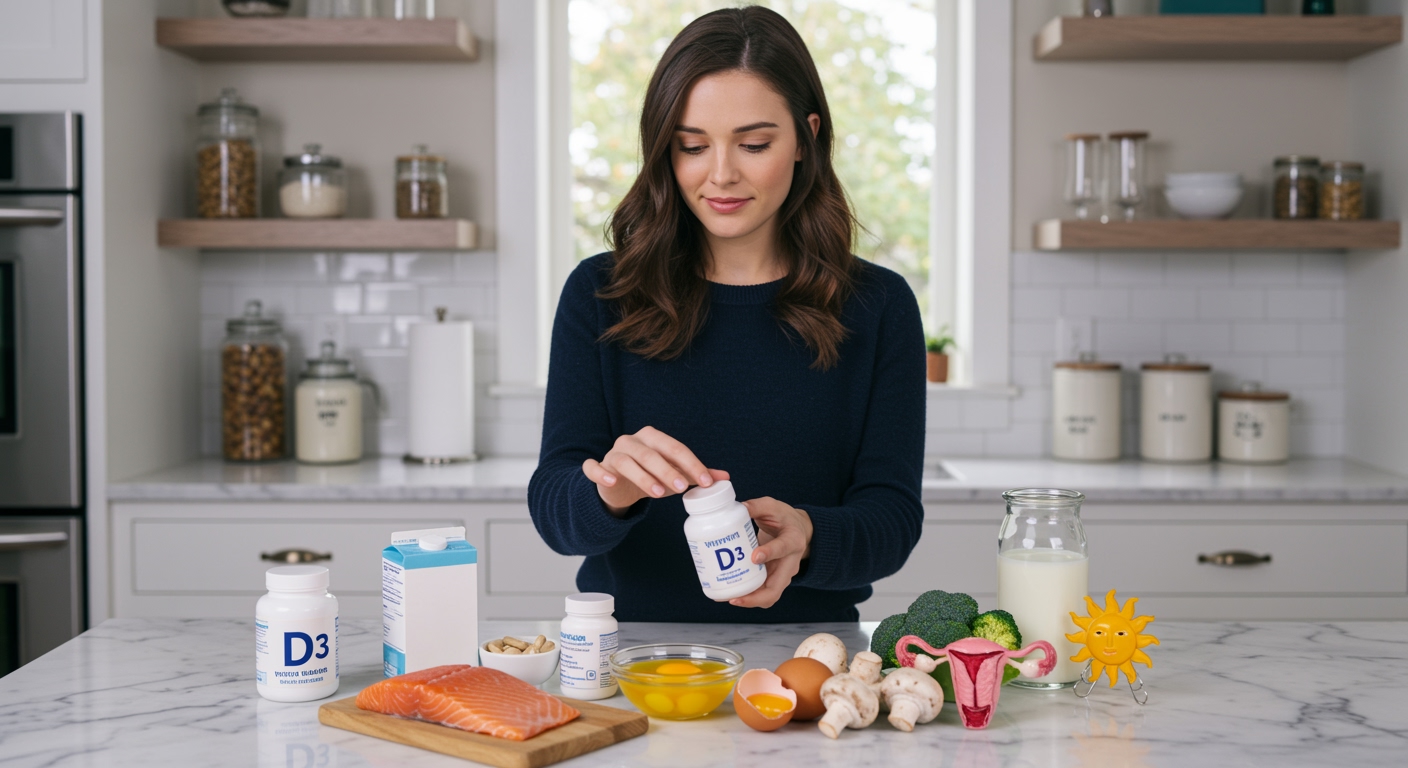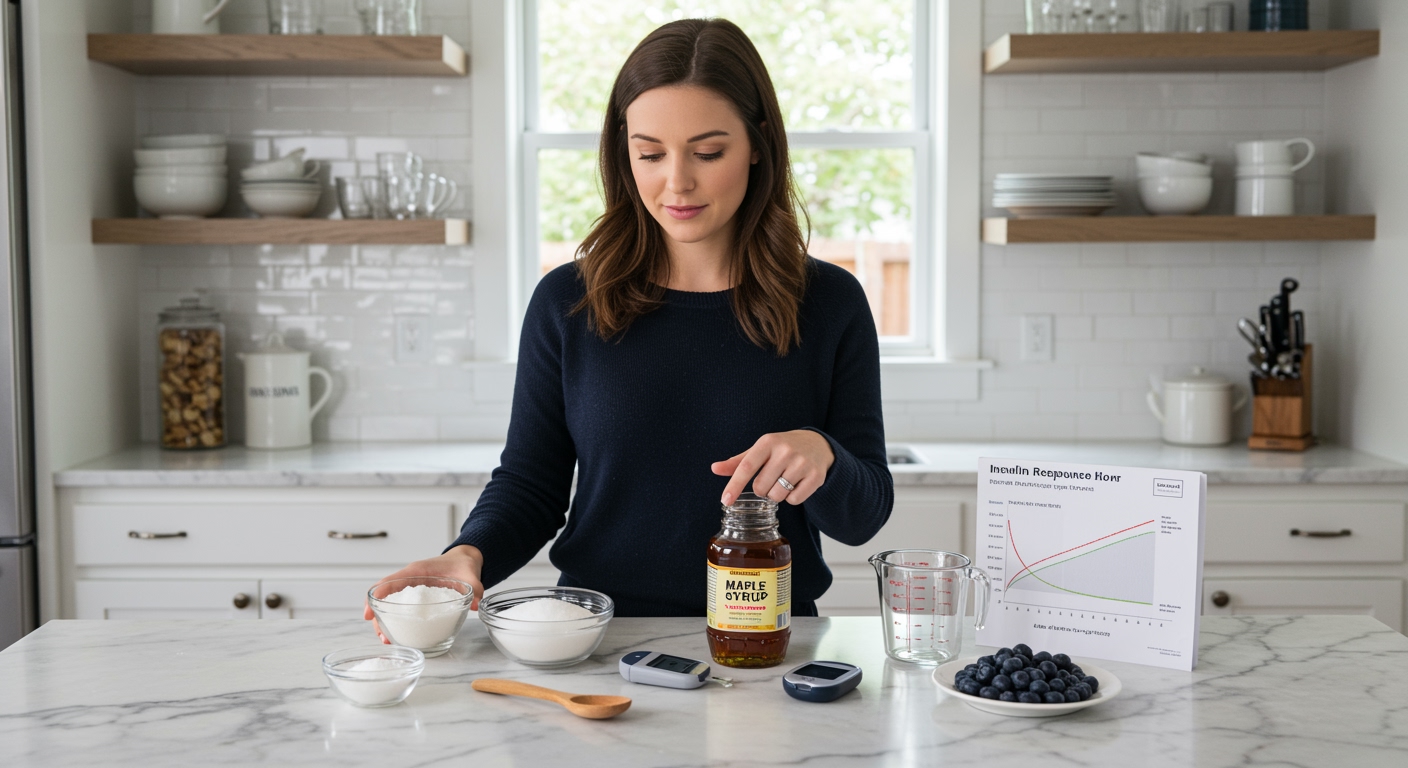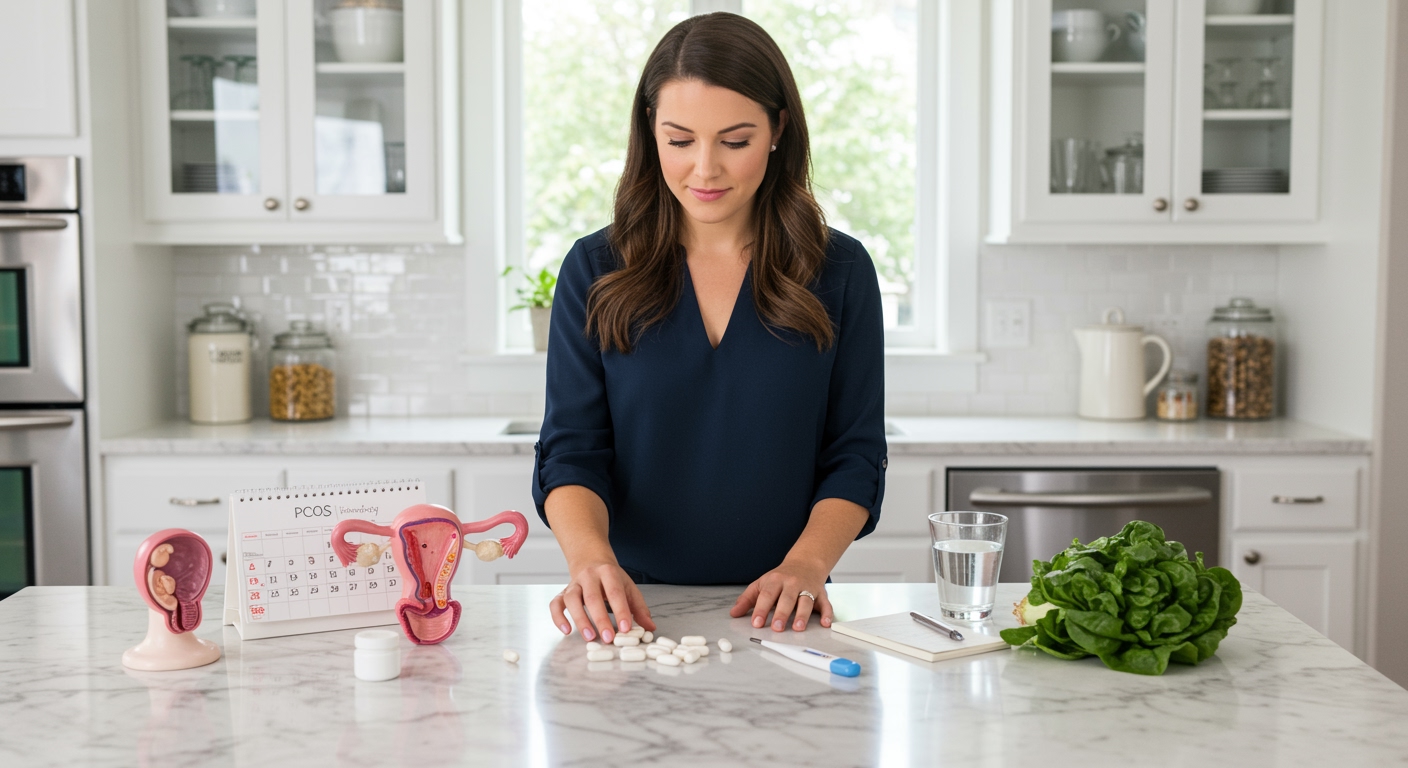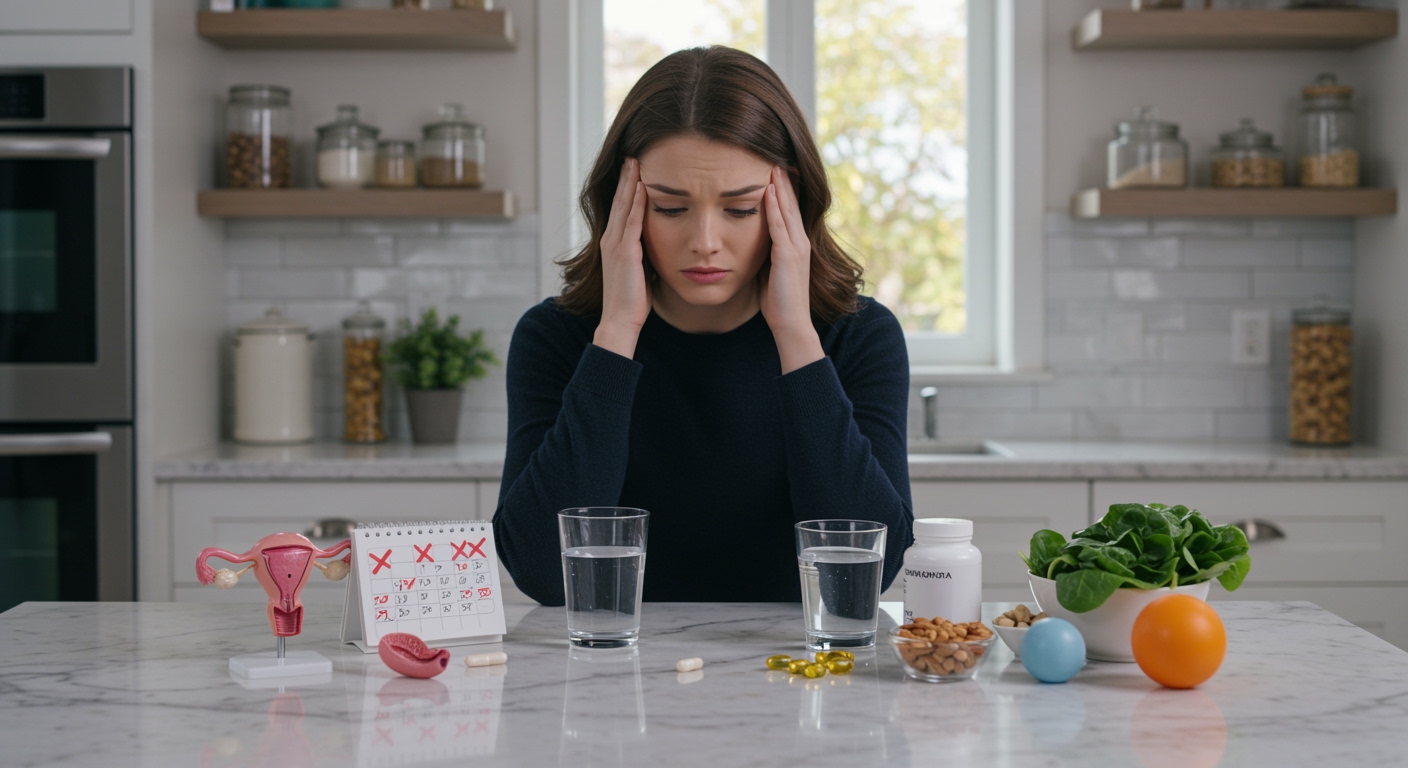✪ Key Takeaway: Vitamin D deficiency affects up to 85% of PCOS women and worsens insulin resistance, irregular periods, and weight gain.
Introduction
Your doctor just told you that your PCOS symptoms are getting worse, but they never mentioned checking your vitamin D levels.
You might be wondering why a simple vitamin could affect your hormones, weight, and irregular periods when you are already dealing with so much.
Hi, I am Abdur, your nutrition coach and today I am going to explain how vitamin D deficiency makes PCOS symptoms significantly worse and what you can do about it.
How Common Is Vitamin D Deficiency In PCOS Women?
Research shows that 67% to 85% of women with PCOS have vitamin D deficiency compared to only 20% of healthy women.
This massive difference cannot be a coincidence when the gap is this wide between PCOS and non-PCOS women.
Women with PCOS tend to have indoor lifestyles due to weight concerns, depression, and low energy levels that keep them away from sunlight.
The chronic inflammation common in PCOS also interferes with vitamin D metabolism in your liver and kidneys.
Higher body fat percentages in PCOS women trap vitamin D in fat tissues, making it less available for your body to use.
Many PCOS women also avoid dairy products and fatty fish due to dietary restrictions, reducing their vitamin D intake from food sources.
✪ Fact: Your skin needs 15-20 minutes of direct sunlight daily to produce adequate vitamin D naturally.
Does Low Vitamin D Make Insulin Resistance Worse?
Vitamin D deficiency directly worsens insulin resistance, which is the root cause of most PCOS symptoms you experience.
Your pancreatic beta cells need adequate vitamin D to produce and release insulin properly when your blood sugar rises after meals.
Low vitamin D levels reduce your muscle cells ability to respond to insulin, forcing your pancreas to produce more insulin to maintain normal blood sugar.
This excess insulin triggers your ovaries to produce more androgens like testosterone, worsening symptoms like acne, hair loss, and irregular periods.
Studies show that PCOS women with vitamin D deficiency have 40% higher insulin resistance markers compared to those with normal vitamin D levels.
The inflammation caused by low vitamin D also interferes with insulin signaling pathways in your liver and muscles.
✪ Pro Tip: Check your fasting insulin levels along with vitamin D to understand the complete picture of your metabolic health.
Can Vitamin D Deficiency Affect Your Menstrual Cycle?
Low vitamin D levels disrupt your menstrual cycle by interfering with hormone production in your ovaries and brain.
Vitamin D receptors are present in your ovaries, where they help regulate the production of estrogen and progesterone needed for regular ovulation.
Your hypothalamus and pituitary gland also need adequate vitamin D to produce FSH and LH, the hormones that trigger ovulation each month.
Women with severe vitamin D deficiency have longer menstrual cycles and are more likely to experience anovulation compared to those with normal levels.
The chronic inflammation from low vitamin D creates an environment that makes it harder for your follicles to mature and release eggs regularly.
Research indicates that correcting vitamin D deficiency can help restore regular ovulation in up to 60% of PCOS women within 3-6 months.
✪ Note: Track your menstrual cycle patterns before and after vitamin D supplementation to monitor improvements.
How Does Vitamin D Status Impact PCOS Weight Management?
Vitamin D deficiency makes weight loss significantly more difficult for women with PCOS through multiple metabolic pathways.
Low vitamin D levels increase production of parathyroid hormone, which promotes fat storage and makes your body resistant to burning stored fat.
Your fat cells contain vitamin D receptors that help regulate fat metabolism, and deficiency disrupts this process leading to increased fat accumulation.
Women with PCOS and vitamin D deficiency have slower metabolic rates and burn fewer calories at rest compared to those with adequate levels.
The increased insulin resistance from low vitamin D makes your body more likely to store calories as abdominal fat rather than use them for energy.
Studies show that PCOS women who correct vitamin D deficiency lose 2-3 times more weight when following the same diet and exercise program.
Adequate vitamin D also improves your mood and energy levels, making it easier to stick to healthy lifestyle changes long-term.
✪ Pro Tip: Combine vitamin D supplementation with strength training to maximize fat loss and muscle preservation in PCOS.
What Are The Best Ways To Fix Vitamin D Deficiency In PCOS?
Most PCOS women need 2000-4000 IU of vitamin D3 daily to reach optimal blood levels between 30-50 ng/mL.
Take vitamin D3 supplements with a fat-containing meal to improve absorption, as this fat-soluble vitamin needs dietary fat to be properly absorbed.
Get 15-20 minutes of direct sunlight exposure on your arms and legs daily during peak hours between 10 AM and 2 PM when possible.
Include vitamin D-rich foods like fatty fish, egg yolks, fortified dairy products, and mushrooms in your weekly meal planning.
Test your vitamin D blood levels every 3-6 months to monitor progress and adjust supplementation doses as needed.
Consider taking magnesium and vitamin K2 alongside vitamin D3, as these nutrients work together to optimize vitamin D metabolism and utilization.
Work with your healthcare provider to determine the right dosage based on your current blood levels, body weight, and PCOS severity.
✪ Note: It typically takes 8-12 weeks of consistent supplementation to see significant improvements in PCOS symptoms.
The Bottom Line
Vitamin D deficiency clearly worsens PCOS symptoms by increasing insulin resistance, disrupting menstrual cycles, and making weight management more difficult.
Your PCOS symptoms are not just about hormones – they are about giving your body the basic nutrients it needs to function properly, and vitamin D is one of the most important pieces of this puzzle.
I would love to hear about your experience with vitamin D and PCOS in the comments below, so please share your questions, success stories, or any challenges you are facing with managing your symptoms.
References
At NutritionCrown, we use quality and credible sources to ensure our content is accurate and trustworthy. Below are the sources referenced in creating this article:
- Oxford Academic: Vitamin D deficiency in women with polycystic ovary syndrome
- PMC: The Role of Vitamin D in Polycystic Ovary Syndrome
- PMC: Vitamin D and PCOS: A Systematic Review
- Frontiers in Nutrition: Vitamin D supplementation in PCOS management





